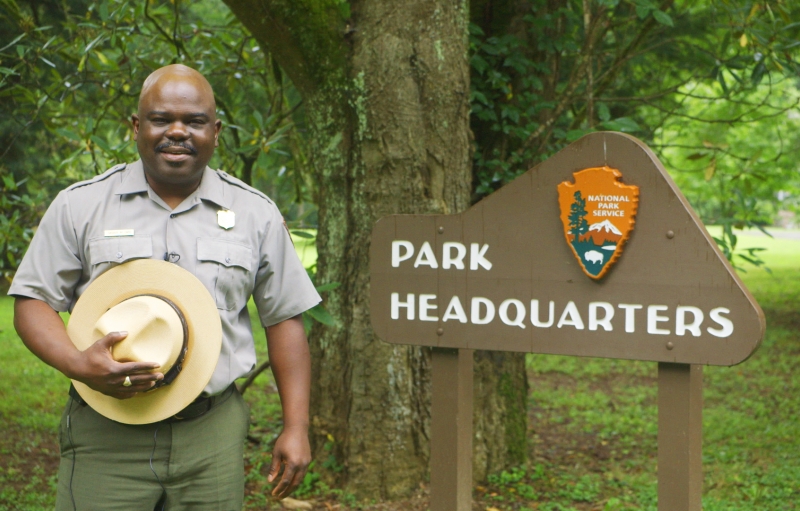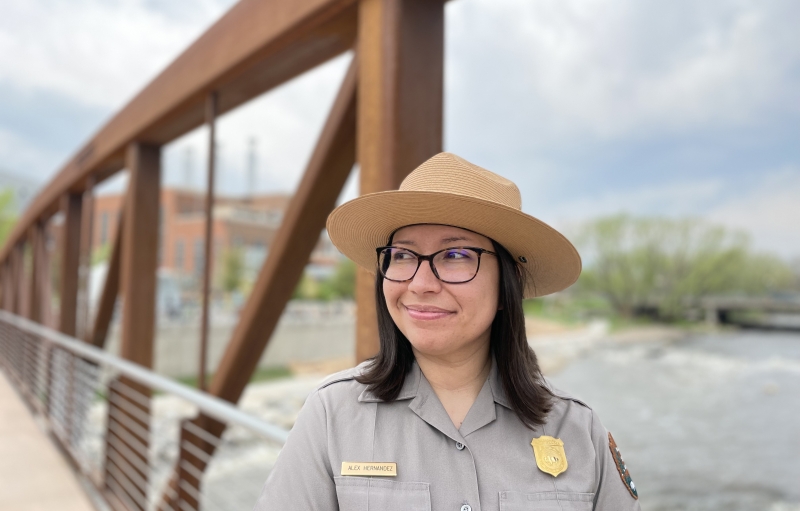African American Civil War Memorial
The African American Civil War Memorial honors the over 200,000 African American soldiers and sailors that served in the Union Army during the Civil War. Dedicated to the service and sacrifice that helped end the Civil War and freed over four million enslaved people, Ed Hamilton's sculpture "Spirit of Freedom" depicts three infantrymen and a sailor with the face of the Spirit of Freedom watching from above, as well as a scene of a soldier with his family.
Carter G. Woodson Home National Historic Site
Often called the "Father of African American History," Dr. Carter G. Woodson's work and legacy is preserved and celebrated at The Carter G. Woodson Home National Historic Site. A champion of women and mentor to many, Dr. Woodson founded the Association for Study of Negro Life and History, Inc., now known as the Association for the Study of African American Life and History, Inc. (ASALH), in his "office-home" in Washington, D.C. It was here Dr. Woodson established "Negro History Week" in 1926, a celebration which grew into Black History month.
Mary McLeod Bethune Council House National Historic Site
Once the first headquarters of the National Council of Negro Women (NCNW), the Mary McLeod Bethune Council House National Historic Site interprets the life and legacy of Mary McLeod Bethune, a prominent civil rights activitist and organizer who used the power of education, political activism, and civil service to stand against racial and gender discrimination. The townhouse, which also served as a refuge for escaped enslaved people and freedmen during the Civil War, stands as a reminder of Mary McLeod Bethune, the NCNW, and the many African American women who have shaped American history.
Martin Luther King, Jr. Memorial
The first memorial on the National Mall to honor an African American, the Martin Luther King, Jr. Memorial honors the legacy of Dr. King and the struggle for freedom, equality, and justice. Referencing the legendary "I Have a Dream" speech he delivered steps away, the memorial features a striking likeness of Dr. King, carved in a "Stone of Hope," opposite a "Mountain of Despair," symbolizing victory borne from disappointment. A wall of quotes from Dr. King's writings and speeches honors his civil rights career and the ideals of peace, democracy, and love.
Frederick Douglass National Historic Site
Frederick Douglass, a courageous, intelligent, and dynamic man, spent his life fighting for justice and equality, and people everywhere still find inspiration in his brilliant words and inclusive vision of humanity. Frederick Douglass National Historic Site preserves Douglass's D.C. home, Cedar Hill, and includes a collection of thousands of original objects that belonged to the Douglasses. This beautifully preserved Victorian mansion honors Douglass's incredible life, his home, and his vision.
Rock Creek Park
Located in the heart of Washington, D.C, the 1,754-acre Rock Creek Park is a true urban oasis. Home to thousands of years of human history, the park still contains remnants of its use during the Civil War. An incredible retreat from the city, the park offers visitors a variety of recreation opportunities from hiking to horseback riding.
Lincoln Memorial
The Lincoln Memorial, a tribute to America's 16th president, has served as the backdrop for countless milestones in our nation’s history, including a 1939 concert from African American opera singer Marion Anderson and the 1963 March on Washington for Jobs and Freedom, where Martin Luther King, Jr. delivered his iconic "I Have a Dream" speech. An inscription marks the spot where Dr. King stood when he delivered one of the more memorable and moving speeches in American history.
Ford's Theatre National Historic Site
Continue to explore sites around the nation’s capital that honor the life and legacy of those who worked for equality, justice and freedom. Abraham Lincoln met with Frederick Douglass in 1863 to discuss the equal treatment and pay for African American soldiers fighting in the Civil War, and later invited Douglass to his second inauguration in March 1865. A few weeks later at what is now preserved at Ford’s Theatre National Historic Site, Lincoln was shot in Ford’s Theatre by John Wilkes Booth.
This inspiring video, produced by the National Park Service and National Park Foundation, invites you to discover more about our history and deepen your experience in our nation’s capital. #FindYourPark / #EncuentraTuParque and stand where heroes stood.




